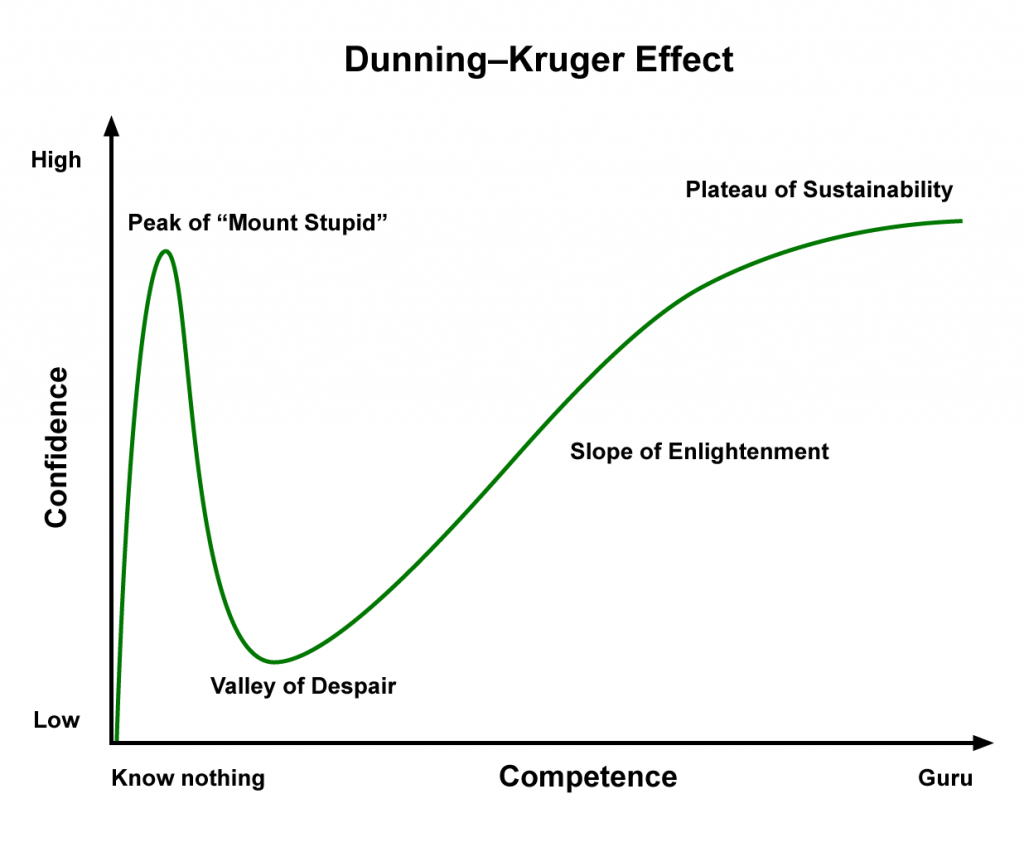I’ve been asked to write a short piece on the impact of confidence in leadership.
1st, how do I keep it short?
2nd, which angle do I start with for this many tentacled topic?
Because whether we talk about true confidence, projection, self-doubt and/or the ever present Imposter syndrome, how we deal with these issues will likely have a greater impact on what we achieve in our career, business, sport, life as most other factors.
And one of the key challenges we all have to face is building our own sense of self-confidence while managing what we perceive as the confidence and swagger of others, much of which we know is BS.
For we live in an era where Confident incompetence is en vogue and the ability to project confidence, however unmerited, often supersedes other basic qualifications for some very serious jobs, often with disastrous consequences.
It stalks the corridors of political power, blocks talent in large-scale organisations and permeates a start-up world where the projection of confidence attracts investment while covering up a multitude of sins.
The “fake it ’till you make it” job description requires you to express supreme confidence (whatever the background truth) in …
… your product
… your numbers
… yourself
… your incompetence
Some make a virtue of a certain kind of narcissism where the “hustle” gets them to the top whilst the rest of us have to wrestle with imposter syndrome and natural self-doubt.
By contrast, true confidence has a look all of its own and has been the subject of detailed research, particularly within business and sport. The impact of gender differences and stereotyping is a whole field on its own. But stripping it all back to basics, I lean on my old friend Socrates.
He believed that we should find confidence in our own beliefs and not be too swayed by others.
That thinking logically about your life directly correlates to becoming more assured and independent while less conformist and less hamstrung by what others think.

To be a confident leader and one who can bring others with you, you don’t need to know everything or even project that you know everything.
You need to get your happiness from within and lead from that core principle.
From there the rest flows…
You gain confidence and judgment about when to say yes, and when to say no.
You understand the importance of listening more than you speak.
You’re not afraid to admit you’re wrong or celebrate other people when they are right.
You build the courage to take risks and importantly the respect to bring others with you.
And importantly, you’ll be able to spot and comfortably negotiate the confident incompetents.
90 Things You Need To Know To Become an Effective CTO

London
2nd Floor, 20 St Thomas St, SE1 9RS
Copyright © 2024 - CTO Academy Ltd